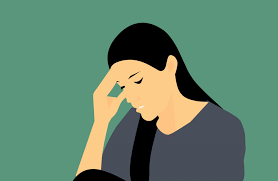What is social anxiety disorder?

Life is full of different types of people, and every single person is unique, however that doesn’t mean that people can’t be grouped into certain types of people. Introverts, extroverts, social butterflies, quiet, loud etc. etc. I’m sure we’ve all heard others talking about the attributes that exist in other people, or even labelled ourselves as being a certain type of person, but it shouldn’t be forgotten about why people are the way they are. The way we are in social situations can be due to much deeper reasons than some people may think, and the causes of this may be due to a mental health condition. In terms of people who struggle with such situations, the condition social anxiety disorder may be one reason for why someone may fear them.
Social anxiety disorder is sometimes referred to as ‘social phobia’ and is an overwhelming and long-term fear of social situations. The symptoms of the condition include worrying about or avoiding social activities such as eating with people and going to parties; worrying about everyday activities such as meeting people in various ways like talking on the phone, starting conversations, and going shopping; and worrying about doing something that you think is embarrassing like blushing. Other symptoms include having a fear of being criticised, and having difficulty in doing things when other people are watching as the feeling may be that a person is being judged or watched all the time. Physical symptoms of social anxiety disorder can include feeling sick, sweating, having palpitations, or trembling, and having panic attacks. People with the condition may also avoid eye contact with other people or have low self-esteem.
People may experience some of the symptoms of the condition but not have social anxiety disorder as lots of people sometimes worry about social situations. Someone who has the condition feels overly worried before, during and after the situations. The condition is about more than just being shy as it affects how a person interacts with others, the activities they carry out every day, their self-confidence, work/school life, relationships, and it is a fear that doesn’t disappear. Many people who have social anxiety disorder also have other mental health issues such as generalised anxiety disorder, panic disorder, or depression.
For some people with social anxiety disorder, it can get better as they get older, but for a lot of people it doesn’t without getting treatment for it as it can help a person manage it. The best treatment is usually Cognitive Behavioural Therapy (CBT) where a therapist can help a person find out what the negative thought patterns and behaviours are and change them. However, a combination of treatments may be more affective, including guided self-help with the use of a CBT-based workbook or online course where a therapist provides regular support; or taking antidepressant medication.
I think mental health should be a much bigger priority in education than it currently is, and this condition is one of the many reasons for why. Social anxiety often starts when a person is a teenager and so along with other mental health conditions that can begin in childhood, a wider awareness of them not only helps the person affected to understand what it is they are experiencing, but it also brings a sense of normality to mental health in general; if children learn about things at a young age, they grow up with more of an understanding to different things within society, which can help erase the stigma mental health still has within some areas.
There is more information included in the link within the references section, but I think it’s important to know that there are charities, online forums, and support groups that aim to help people who have an anxiety disorder. Like with all mental health conditions, people who experience them are never alone if help is wanted.
Sarah Keeping MBPsS MSc PgDip GDip BA (Hons) Cert HE
Follow Sarah on twitter at @keepingapproach, facebook at @keepingapproach, and on instagram at @thekeepingapproach
Follow E-therapy on social media:
Facebook – @Etherapy
Instagram – @EtherapyToday
Twitter – @EtherapyToday
References



